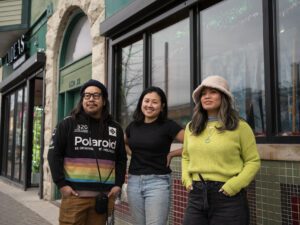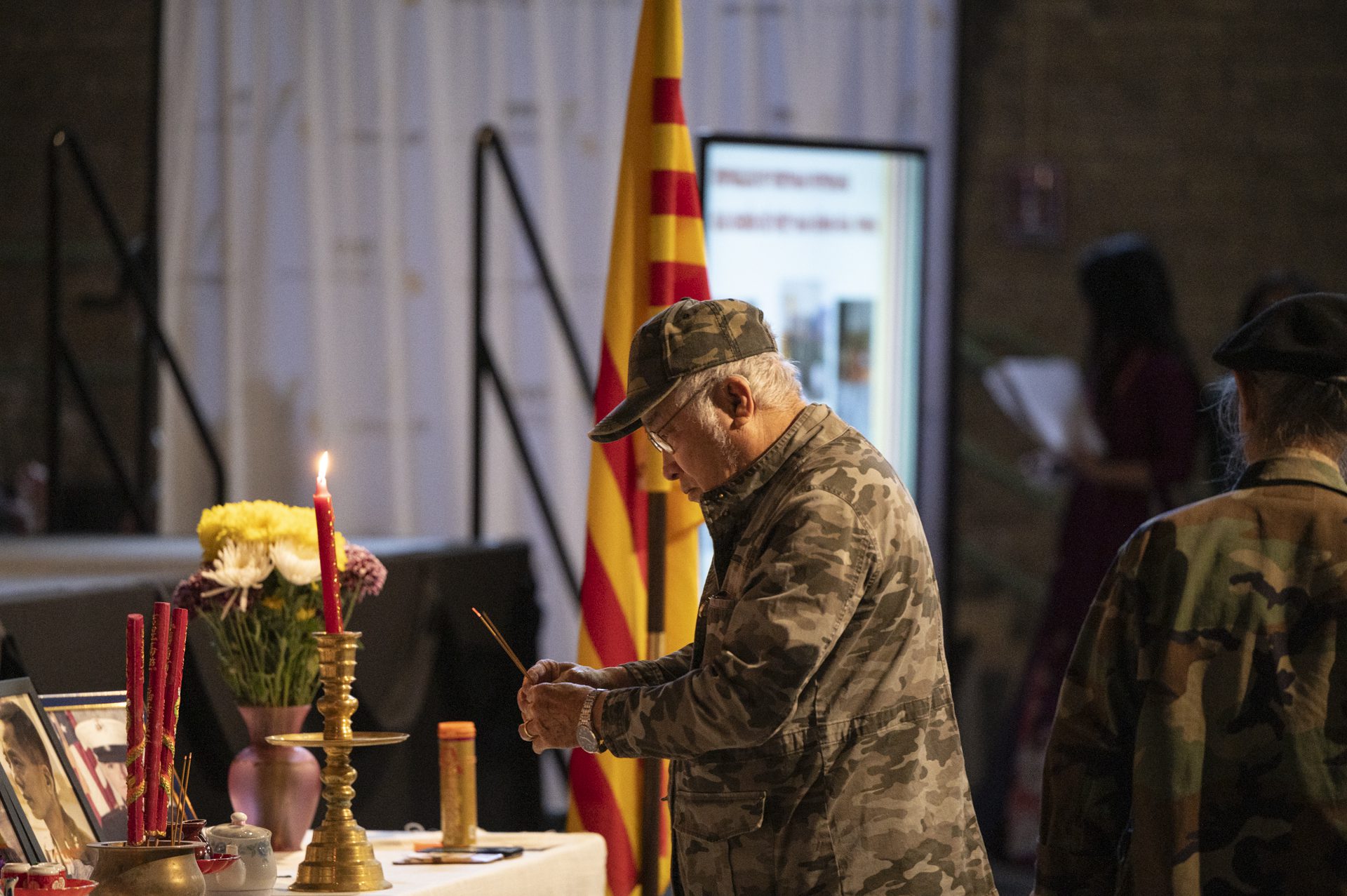 Max Herman/Borderless Magazine
Max Herman/Borderless MagazineChicago’s Vietnamese refugees and second-generation community members explore the war’s impact and legacy.
On a sunny Saturday afternoon in May, a soft breeze passed the storefronts of dozens of Vietnamese restaurants and businesses that line Chicago’s historic Vietnamese and Southeast Asian corridor on Broadway and Argyle Street.
A short walk away, nearly 200 people gathered at St. Augustine College to commemorate the 50th anniversary of the end of the Vietnam War — the turning point that brought so many of those businesses to Uptown.
“This year represents 50 years of mass impact and trauma on the community, but also 50 years of healing from it and coming together,” said Nhi Dao, a student at the University of Chicago.
News that puts power under the spotlight and communities at the center.
Sign up for our free newsletter and get updates twice a week.
The gathering, organized by the Vietnamese Association of Illinois in partnership with other local Vietnamese community organizations, brought together multiple generations of Vietnamese Americans, food vendors, religious leaders and high school performers to reflect on the history of Argyle Street and the future of the community in the U.S.
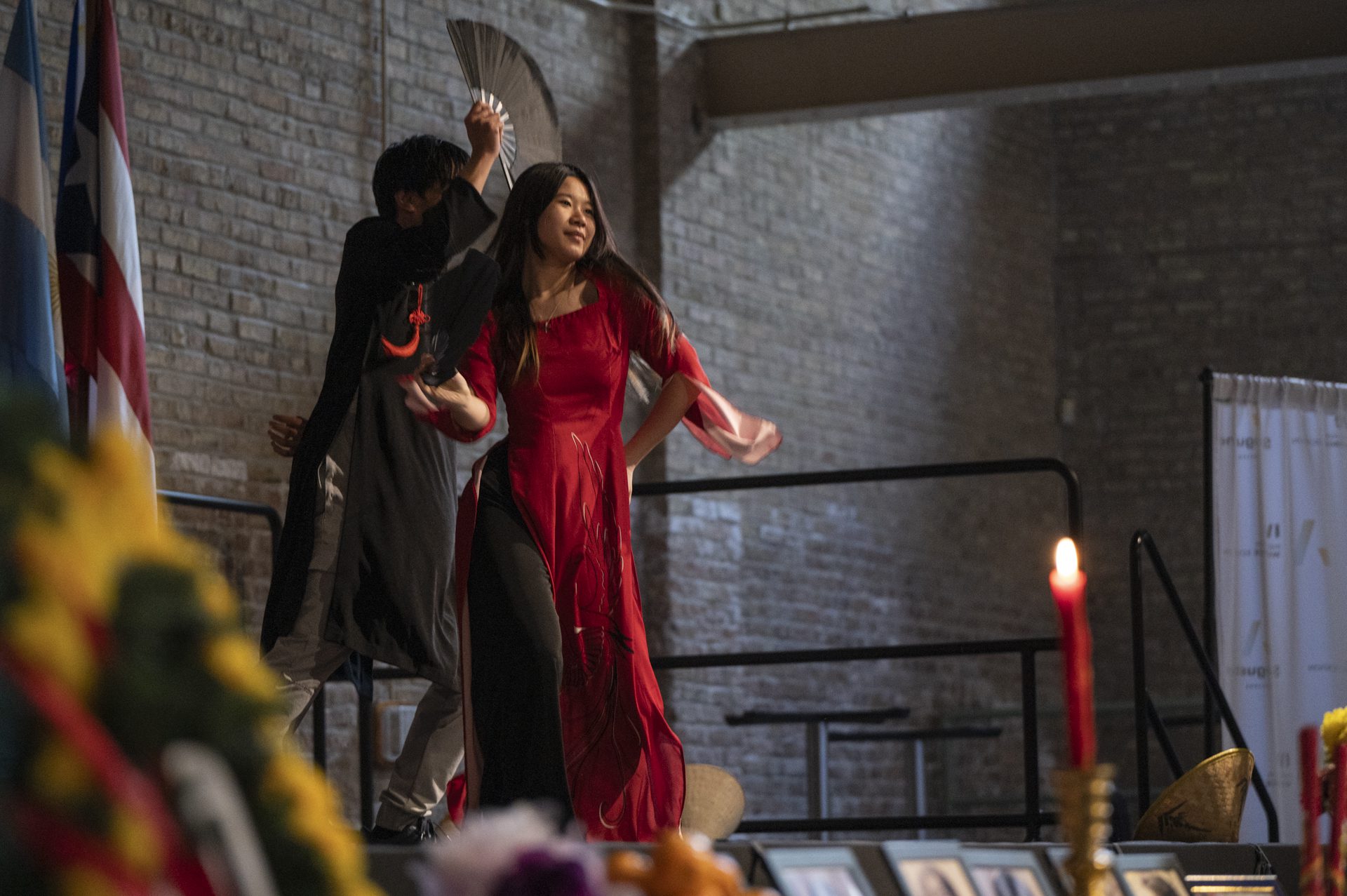
Many Vietnamese Americans who live in Chicago and the surrounding suburbs today came as refugees after the end of the war on April 30, 1975. As of 2024, roughly 37,000 Vietnamese people lived in Illinois, according to AAPI Data.
After the fall of Saigon in 1975, nearly 2 million Vietnamese people fearing political persecution fled the country by boat, though more than 500,000 people died or disappeared during the journey, according to the National Bureau of Asian Research.
The end of the Vietnam War marked the beginning of the largest refugee resettlement effort in U.S history. The arrival of Southeast Asian refugees in the 1970s and ‘80s reshaped U.S. refugee policy and laid the groundwork for the 1980 Refugee Act, a bipartisan bill that formalized the resettlement process and what it meant to be a refugee.
Ngoan Le came to the U.S. as a refugee after the fall of Saigon when she was 19. She studied at Illinois State University before becoming VAI’s first executive director in the 1980s. Le said coming to the U.S. as a refugee escaping war came with unique challenges, including navigating family separations and survivor’s guilt.
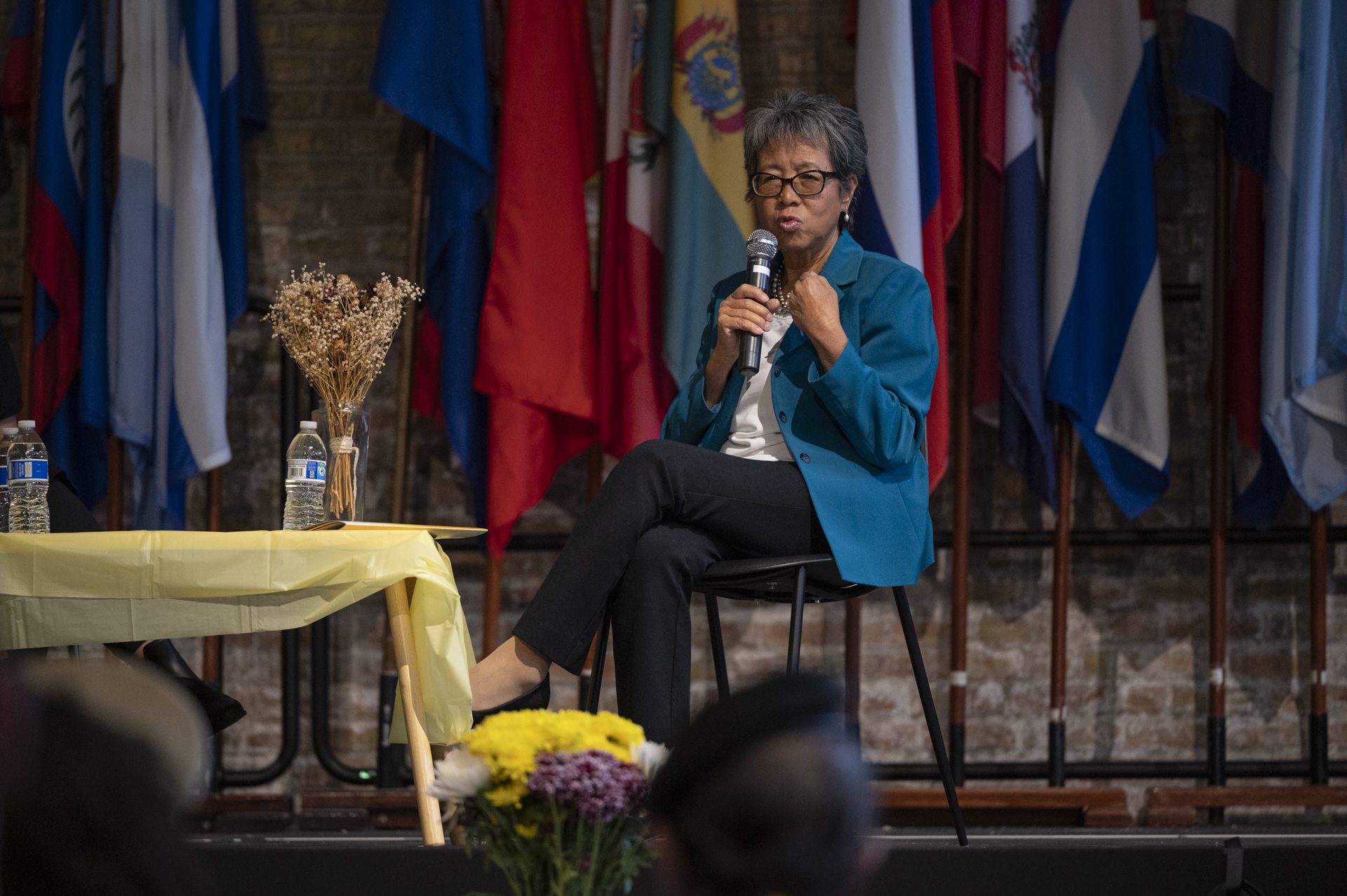
“Because refugees have gone through the experience where we know that the risk of death is high, we don’t take anything for granted,” Le said. “I still remember the first few months being able to walk in a park with no fear of gunshot or bombings.”
Though half a century has passed since the war’s end, Le added that pain still lingers from the war for those who lived through it, especially for those who were political prisoners or lost loved ones while escaping from Vietnam.
“I still remember the first few months being able to walk in a park with no fear of gunshot or bombings.”
The Republic of Vietnam Veterans Association honored some of those who died during the war at Saturday’s event, lighting candles and incense for fallen South Vietnamese military officers.
When the northern Communist Party took power in Vietnam in 1975, an estimated 500,000 to 1 million former military officers and officials for the southern Republic of Vietnam government were sent to “re-education camps,” or forced labor camps, according to the Vietnamese Heritage Museum.
Tam Nguyen, a former first lieutenant in the South Vietnamese military, was incarcerated for four years in re-education camps before escaping Vietnam by boat in 1979.
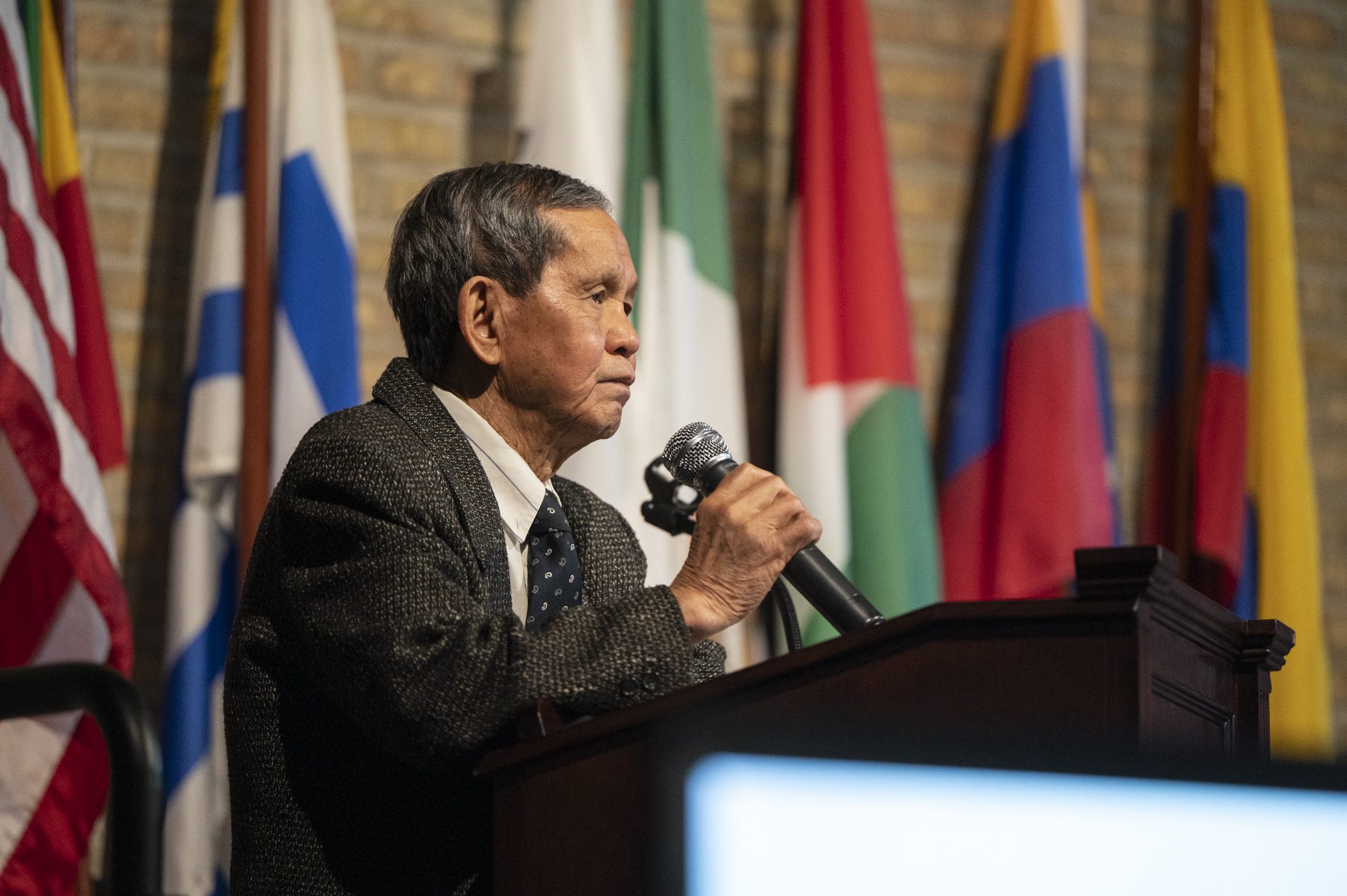
He remembers the fears and challenges of living in the camps, including seeing the killing of fellow people who were incarcerated. Despite those memories, Nguyen said it’s important to move forward.
“There were many horrifying things that happened back then. I still see them in my dreams when I sleep now, but I don’t let those things affect my life too much,” Nguyen said. “I found a way to remember them, and then let them go, so that I can move forward.”
VAI Executive Director Van Huynh hoped Saturday’s event would be an opportunity for different generations of Vietnamese Americans to come together to reflect on the community that has been growing in Chicago and Illinois and share their hopes for the future of Vietnamese immigrants, refugees, and their children here.
“What do you want for your grandchildren and the generations to come?” Huynh said. “This is an important question because I am only standing here today because of the vision that co Ngoan Le, VAI’s first executive director, and the leaders at the time had for our community.”
Read More of Our Coverage
For UChicago student Dao, the Vietnamese community they found in the city helped them navigate their identity as a Vietnamese American because they grew up in a suburb of Illinois without a large Vietnamese community.
Dao was born in Vietnam but immigrated to the U.S. with their mother when they were two.
“Being everywhere, traveling everywhere and just finding each other despite it all, I think is really beautiful,” Dao said.
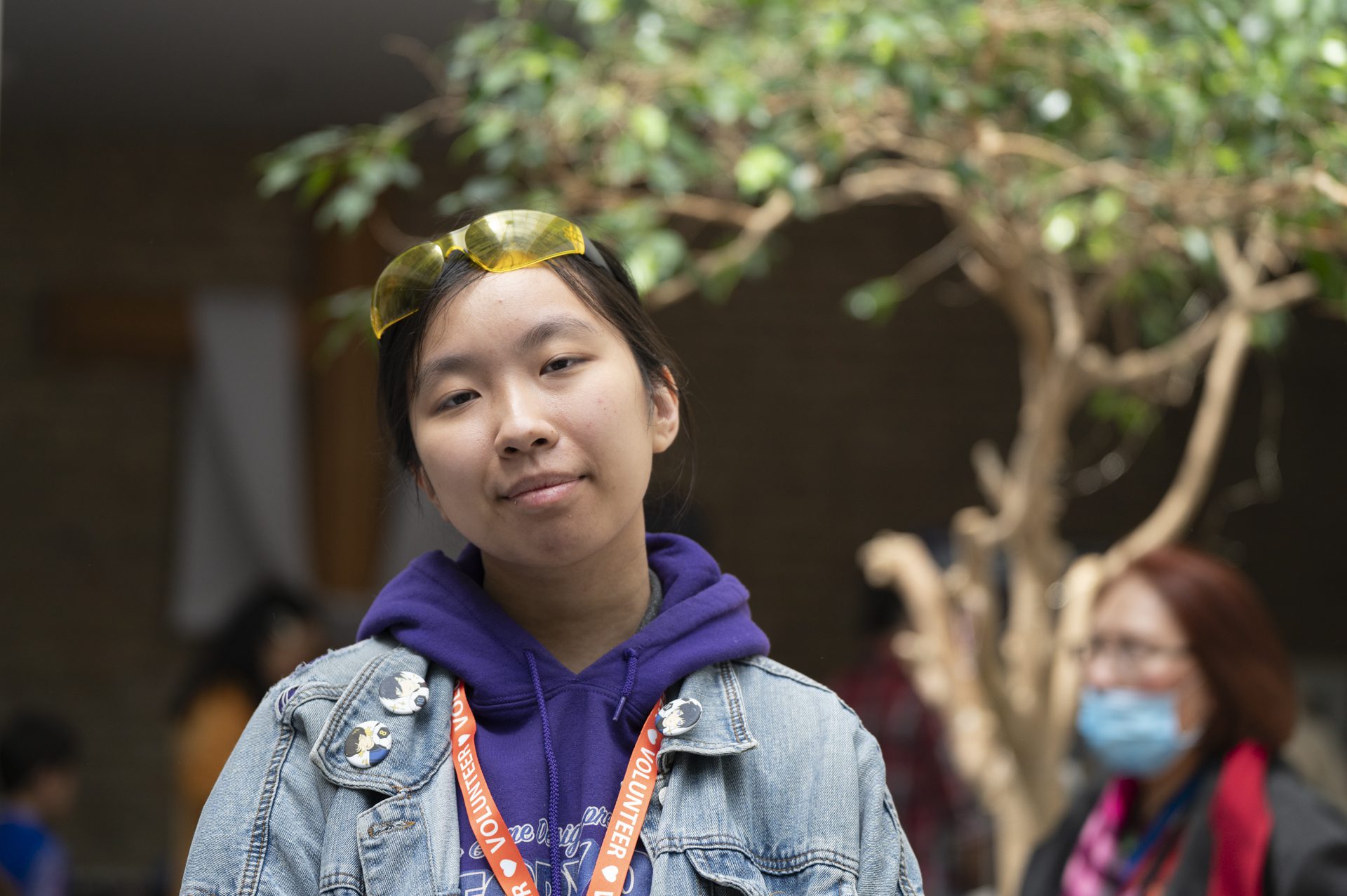
Reflecting on the growth of the Vietnamese community in Uptown is a point of pride, said Nguyen. For over 30 years, Nguyen worked for VAI and helped Vietnamese small businesses open in Uptown.
In recent years, new Vietnamese-owned staples such as HAIBAYÔ, Fat Miilk coffee and First Sip Cafe have opened in Argyle alongside longtime businesses such as Nhà Hàng Vietnam Restaurant, Furama and Tai Nam Food Market.
During the event, younger generations of business owners, like An Choi Kitchen, feīn matcha and Kiyomi’s portrait pop-up, sold desserts and crafts alongside older generations selling homemade drinks and food.
“The vegetables from the tropics, that aren’t from here and that you’d have to buy at specific markets — now, we have plenty of them both in the summer and winter, year-round,” Nguyen said. “This is something I am happy about and proud of.”
The success of Vietnamese refugees and younger generations of Vietnamese Americans in the U.S. despite challenges like language barriers reflects decades of hard work and perseverance, Nguyen said.
As he gets older, he hopes younger generations of Vietnamese Americans will carry on the “energy” of his generation’s work building lives, success and community in Chicago and the U.S.
The work of community-building for Vietnamese people and other ethnic groups has helped him overcome the challenges of his past, he said.
“Bring[ing] the whole community…up,” Nguyen said. “That’s my dream.”
